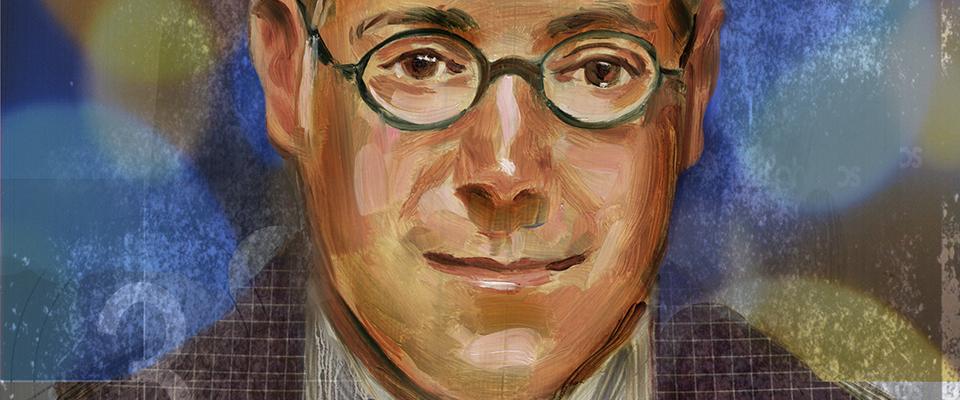Visiting assistant professor, Berkeley Department of Film and Media
1. What was the first film you saw?
Eileen Jones: Bambi was the first film I remember. I hid under the seat during the terrifying parts: the shooting of Bambi’s mother, the stag fight, the forest fire. But at the same time I loved the intense emotional impact of that film, and I still think that’s what’s most impressive and interesting about cinema. Critics are always calling for more “elevated” films, cinema aimed at the intellect. But I don’t see why we consider visceral impact a bad thing, or why we assume ideas and insights and even philosophical stances aren’t part of sensational films. Linda Williams wrote a great essay about how people tend to disparage the “body genres” such as horror, melodrama, and porn, which are intended to provoke a direct physical response. I think you could expand her argument to talk about most popular cinema as “body films” of some kind, and those are the films I prefer and generally defend. We need one truly lively art. The museums are full of dead art.
2. Your criticism is pretty blunt. How did you develop your style?
I’ve just been trying to say what I wanted to say as clearly and forcefully as possible, in a way that’s almost impossible to do in academic writing. Film criticism got shoved out of the academy pretty forcefully decades ago, though it’s crept back in quietly in recent years. I think the artificial separation between film theory and criticism impoverished both discourses, and the general result is duller, more incomprehensible film theory, and dumber film criticism.
3. The general thesis of your latest book, Filmsuck, USA, is that American cinema has declined in recent years, but not because of commercialism necessarily. Why do you think this is?
The argument blaming commercialism for bad filmmaking is a strange one because the dominant system in America for generations has been the Hollywood film industry, and that’s what produced the majority of great American films. Obviously you can make excellent films in an artisanal way too, though you’re not likely to make many of them. There’s just no evidence, in my view, that artisanal production processes generally create better films, or that smaller, independent films are inherently superior to big, studio-made ones. And the majority of independent films are dreck, same as the majority of commercial films. I find commercial dreck is still, generally, more enjoyable, if only because it tends to be less pompous.
But it certainly seems that the blockbuster business model established in Hollywood in the ’80s is getting pretty played out; even Steven Spielberg is claiming that it’s coming to a crisis point. Though this model produced some remarkable films, still, it’s the 1980s when the general creative decline sets in. I’m not saying anything too original when I point out that around this time the people running Hollywood film production became increasingly generic MBA-types with no particular knowledge of or interest in film. The profit motive has always dominated the American film industry, but at least up through the 1970s you still had a strong strain of movie-obsession and wild risk-taking.
The result of so much risk-aversion in Hollywood filmmaking is that the films are increasingly boring, and being boring is the deadliest possible sin in an entertainment industry. Just compare contemporary American film with American television and you’ll see where so much of the risk-taking excitement went. So many top Hollywood directors (Martin Scorsese, Michael Mann, Steven Soderbergh, et al.) have been taking interesting projects to television because they can’t get them made otherwise.
4. In your opinion, what distinguishes American film from the rest of world cinema?
While acknowledging that there’s always been a lot of international talent working in Hollywood, American film is pretty distinctive, not always in good ways. I’d identify sheer overconfidence as the leading characteristic of Hollywood cinema. (And you see a muted version of the same overconfidence in American independent film. Watch a mumblecore film if you want to see American self-regard on a low budget.) There’s a kind of swaggering ethos that goes along with the state-of-the-art special effects, the biggest stars, the top talent often lured away from other national cinemas. At its best, the result is great excitement and crazy, over-the-top inventiveness—Tarantino is a good example of the rampant American filmmaker. But it can generate a lot of careless stupidity too.
5. Do you think film criticism still has value in an age where anyone can (and usually does) post their opinions on the Web?
It has immense value, even if most criticism is rotten. The best-known, best-paid critics are generally far worse writers of criticism than the most casual unpaid bloggers. So, they don’t often examine their own criteria for judgment, they’re absurdly anxious to maintain their outmoded high culture credibility, and they write in the worst, most hackneyed terms. Doing that kills the whole point of criticism, for me. It should function as a passionate argument for the value, or lack of value, of what you’ve experienced, in a way that prods others to respond, to get into the conversation.




















